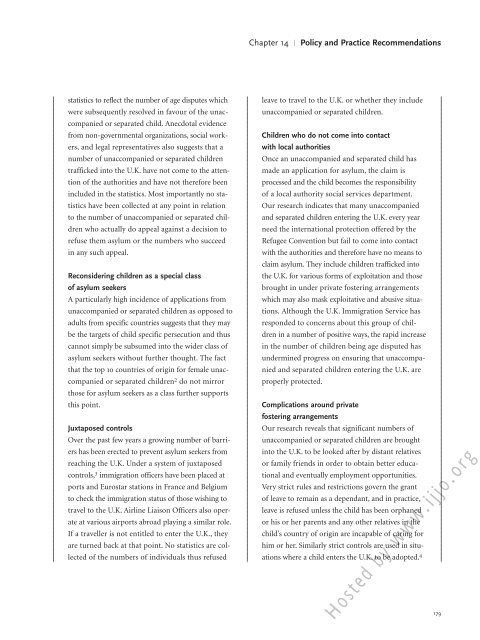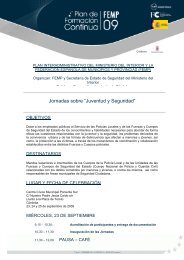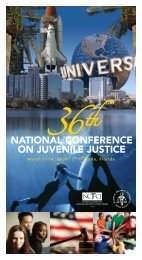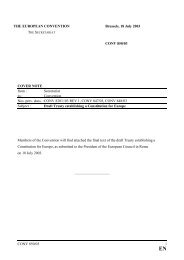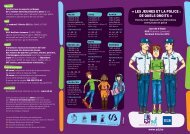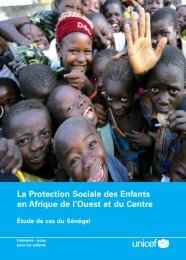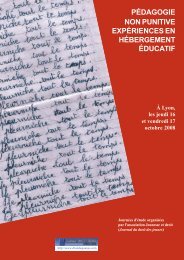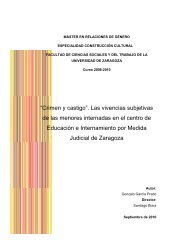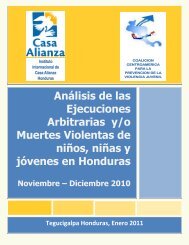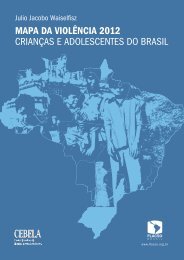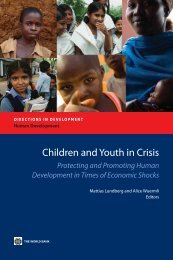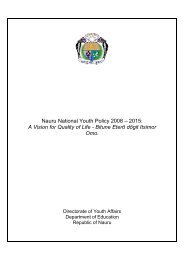Hosted by www.ijjo.org
Hosted by www.ijjo.org
Hosted by www.ijjo.org
You also want an ePaper? Increase the reach of your titles
YUMPU automatically turns print PDFs into web optimized ePapers that Google loves.
Chapter 14 | Policy and Practice Recommendations<br />
statistics to reflect the number of age disputes which<br />
were subsequently resolved in favour of the unaccompanied<br />
or separated child. Anecdotal evidence<br />
from non-governmental <strong>org</strong>anizations, social workers,<br />
and legal representatives also suggests that a<br />
number of unaccompanied or separated children<br />
trafficked into the U.K. have not come to the attention<br />
of the authorities and have not therefore been<br />
included in the statistics. Most importantly no statistics<br />
have been collected at any point in relation<br />
to the number of unaccompanied or separated children<br />
who actually do appeal against a decision to<br />
refuse them asylum or the numbers who succeed<br />
in any such appeal.<br />
Reconsidering children as a special class<br />
of asylum seekers<br />
A particularly high incidence of applications from<br />
unaccompanied or separated children as opposed to<br />
adults from specific countries suggests that they may<br />
be the targets of child specific persecution and thus<br />
cannot simply be subsumed into the wider class of<br />
asylum seekers without further thought. The fact<br />
that the top 10 countries of origin for female unaccompanied<br />
or separated children 2 do not mirror<br />
those for asylum seekers as a class further supports<br />
this point.<br />
Juxtaposed controls<br />
Over the past few years a growing number of barriers<br />
has been erected to prevent asylum seekers from<br />
reaching the U.K. Under a system of juxtaposed<br />
controls, 3 immigration officers have been placed at<br />
ports and Eurostar stations in France and Belgium<br />
to check the immigration status of those wishing to<br />
travel to the U.K. Airline Liaison Officers also operate<br />
at various airports abroad playing a similar role.<br />
If a traveller is not entitled to enter the U.K., they<br />
are turned back at that point. No statistics are collected<br />
of the numbers of individuals thus refused<br />
leave to travel to the U.K. or whether they include<br />
unaccompanied or separated children.<br />
Children who do not come into contact<br />
with local authorities<br />
Once an unaccompanied and separated child has<br />
made an application for asylum, the claim is<br />
processed and the child becomes the responsibility<br />
of a local authority social services department.<br />
Our research indicates that many unaccompanied<br />
and separated children entering the U.K. every year<br />
need the international protection offered <strong>by</strong> the<br />
Refugee Convention but fail to come into contact<br />
with the authorities and therefore have no means to<br />
claim asylum. They include children trafficked into<br />
the U.K. for various forms of exploitation and those<br />
brought in under private fostering arrangements<br />
which may also mask exploitative and abusive situations.<br />
Although the U.K. Immigration Service has<br />
responded to concerns about this group of children<br />
in a number of positive ways, the rapid increase<br />
in the number of children being age disputed has<br />
undermined progress on ensuring that unaccompanied<br />
and separated children entering the U.K. are<br />
properly protected.<br />
Complications around private<br />
fostering arrangements<br />
Our research reveals that significant numbers of<br />
unaccompanied or separated children are brought<br />
into the U.K. to be looked after <strong>by</strong> distant relatives<br />
or family friends in order to obtain better educational<br />
and eventually employment opportunities.<br />
Very strict rules and restrictions govern the grant<br />
of leave to remain as a dependant, and in practice,<br />
leave is refused unless the child has been orphaned<br />
or his or her parents and any other relatives in the<br />
child’s country of origin are incapable of caring for<br />
him or her. Similarly strict controls are used in situations<br />
where a child enters the U.K. to be adopted. 4 179<br />
<strong>Hosted</strong> <strong>by</strong> <strong>www</strong>.<strong>ijjo</strong>.<strong>org</strong>


